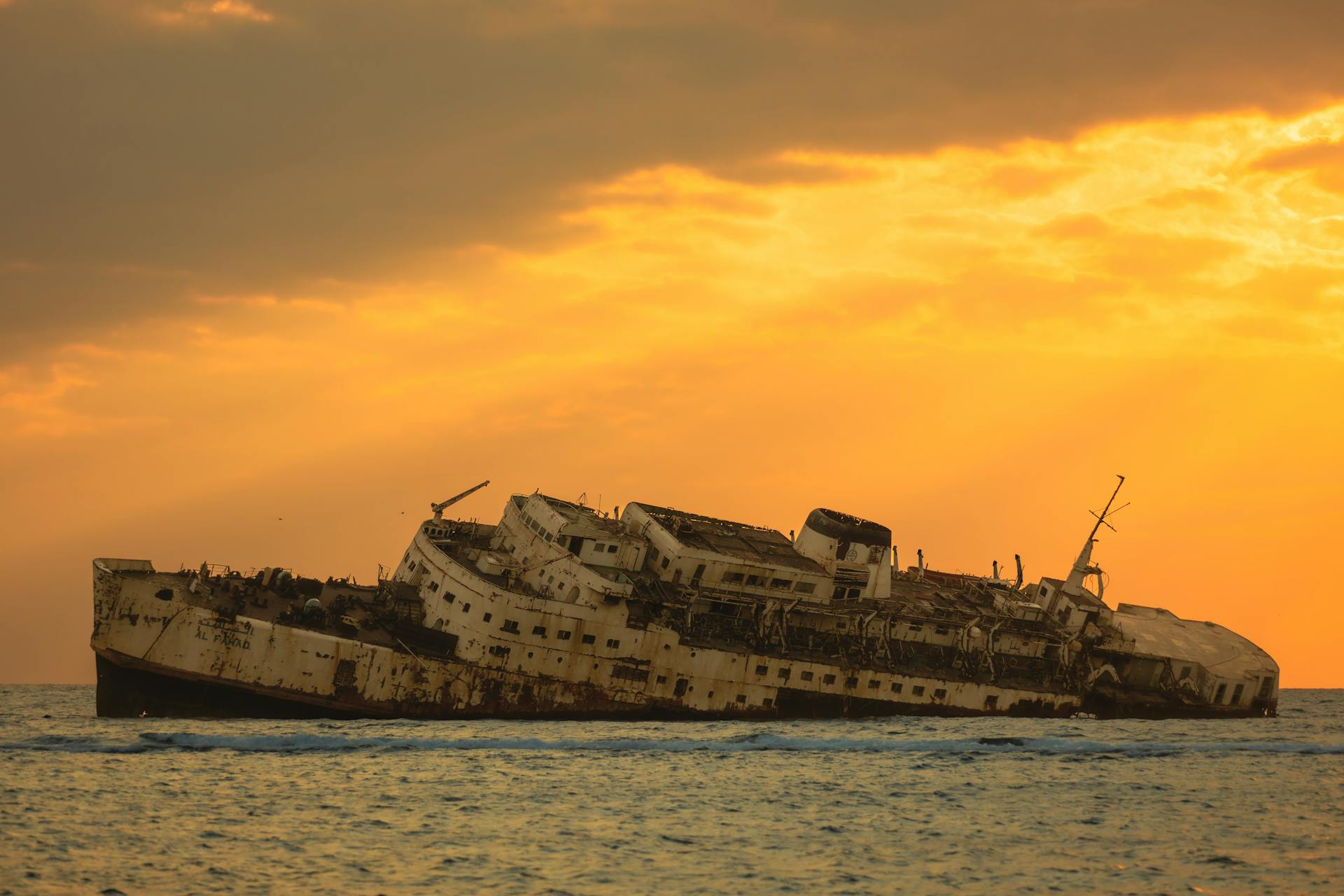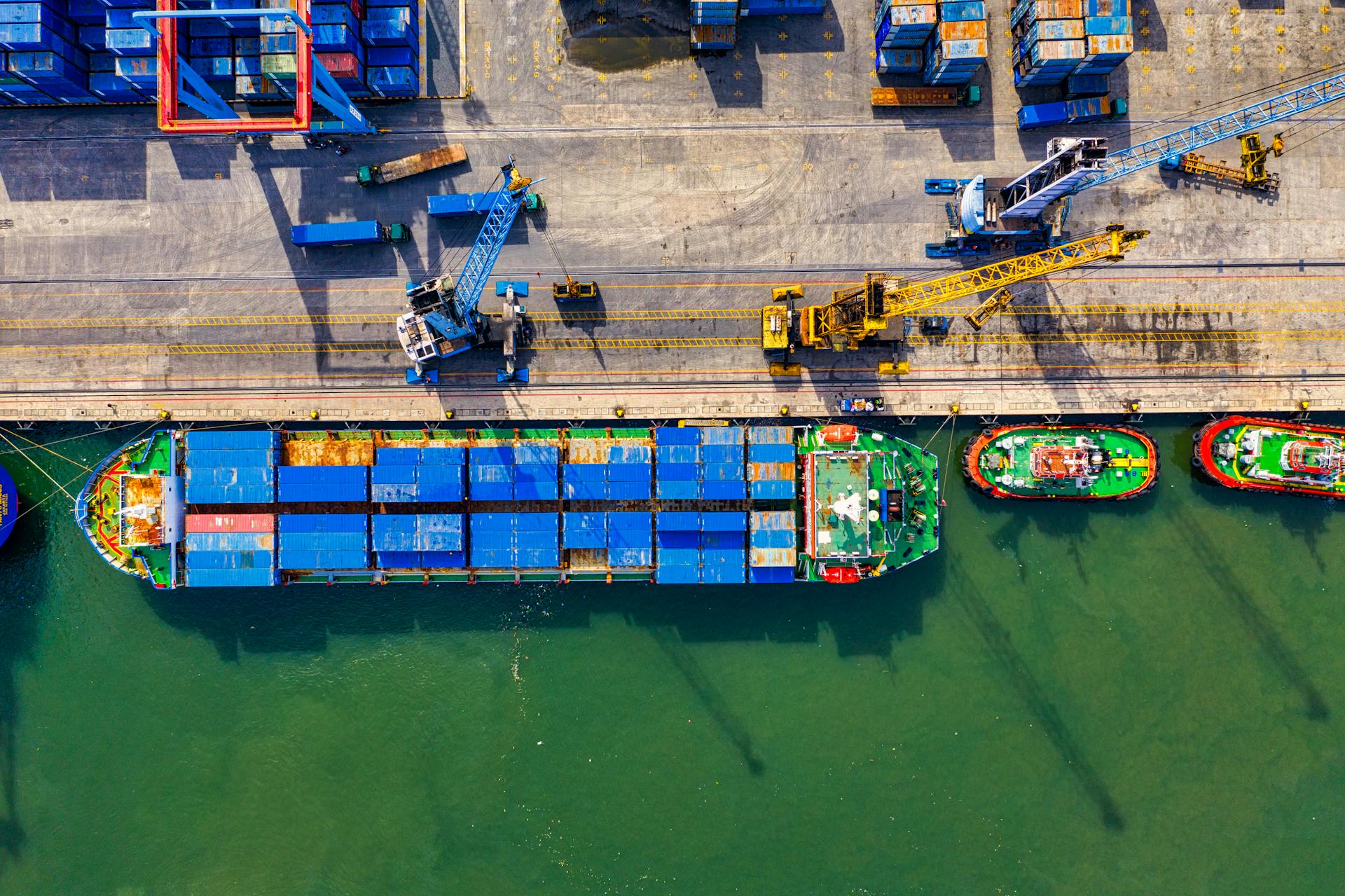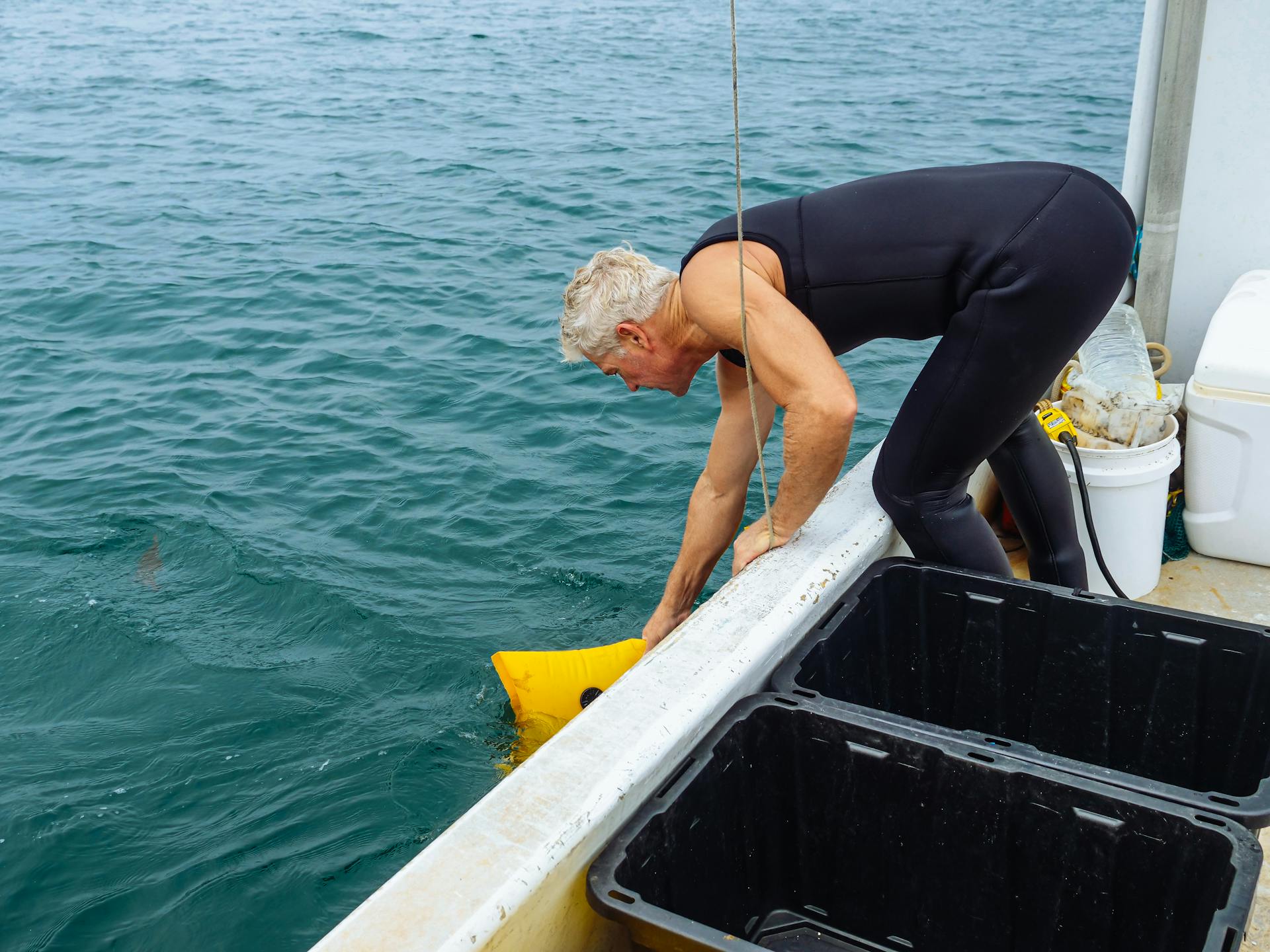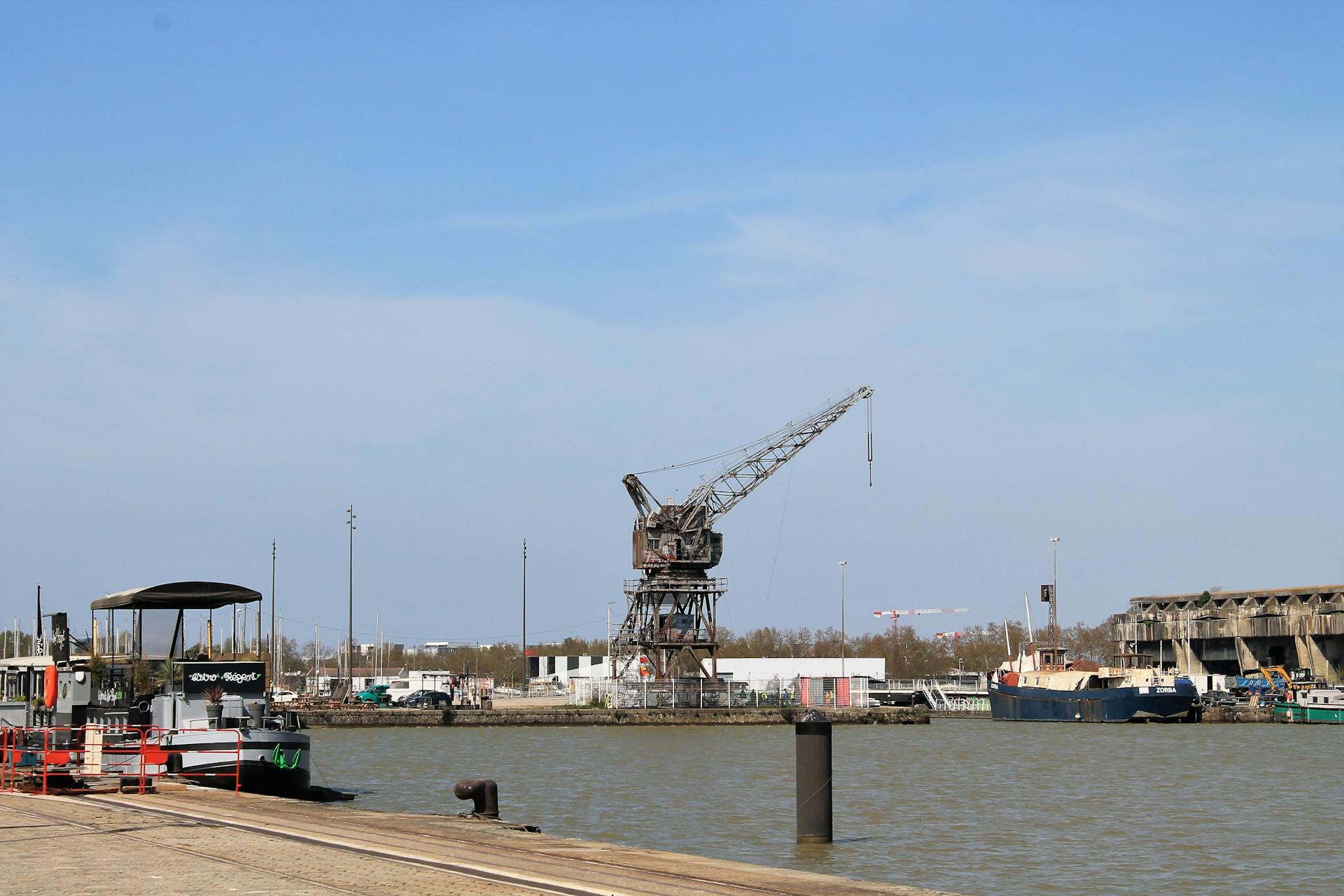
The MV Yara Birkeland is a revolutionary vessel that's making waves in the marine transportation industry. It's the world's first fully electric and autonomous container ship, designed to reduce emissions and operating costs.
The Yara Birkeland is equipped with four batteries that provide a total of 7,000 kWh of power, allowing it to travel up to 23 nautical miles on a single charge. This means it can make multiple trips without needing to refuel.
Operating costs are significantly reduced, thanks to the elimination of fuel consumption and reduced maintenance needs. This is a game-changer for companies like Yara, which can save millions of dollars per year on fuel and maintenance costs.
Design and Features
The MV Yara Birkeland is a remarkable vessel.
It's being designed by Marin Teknikk, a company with a reputation for innovative ship design.
The vessel will have an overall length of 79.5m, a moulded width of 14.8m, a depth of 10.8m, and a full draught of 5m.
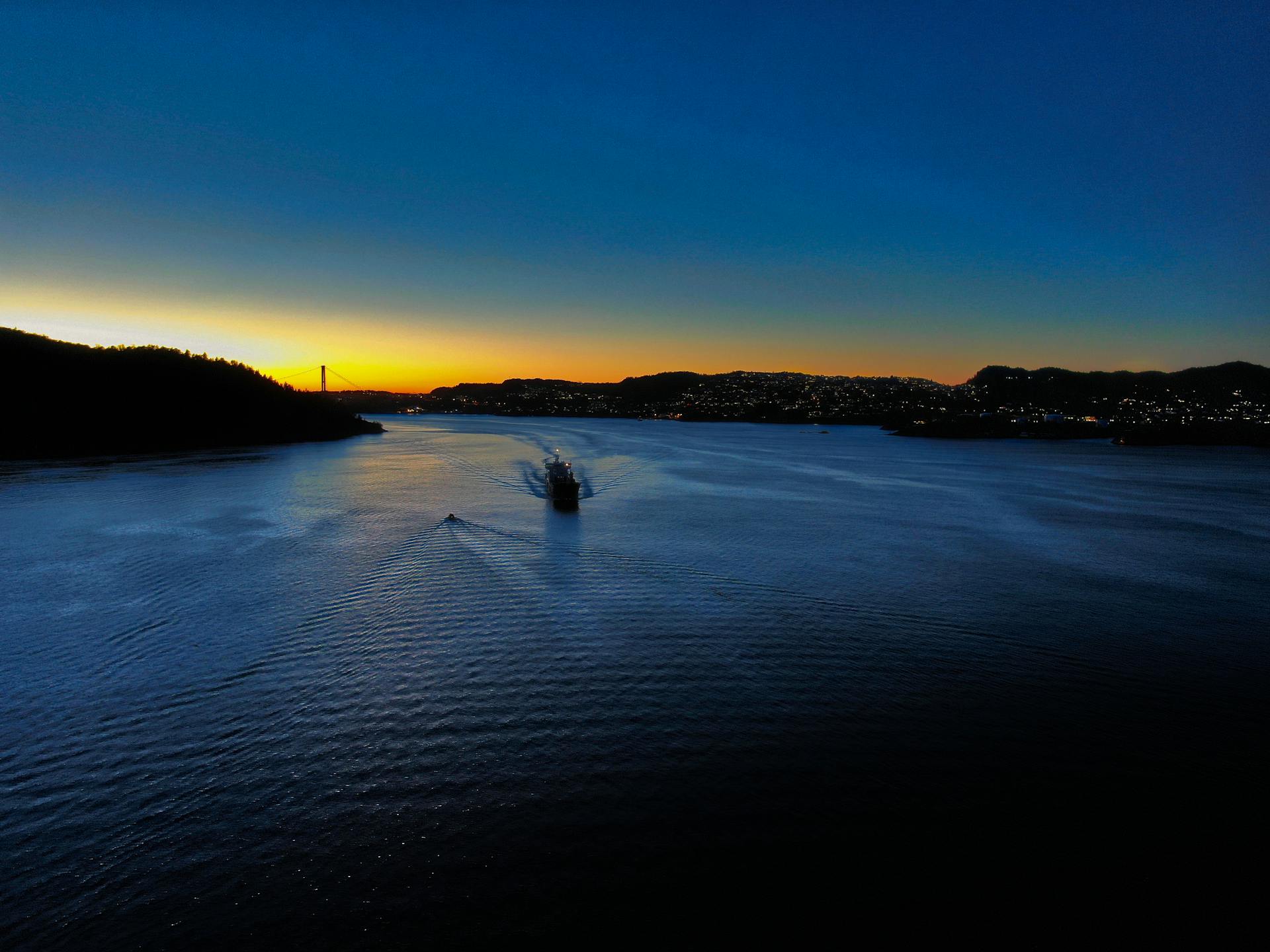
The zero-emission vessel will have a deadweight of around 3,200t.
YARA Birkeland will feature an automatic mooring system that allows for autonomous berthing and unberthing without special preparations.
The vessel is scheduled to be delivered by the shipyard in the second half of 2018.
A 2.4t scale model of the vessel was revealed in September 2017, marking an important milestone in its development.
The contract for the vessel's construction is expected to be signed by the end of 2017.
ENOVA, a company owned by the Norwegian Ministry of Petroleum and Energy, announced a funding grant of $16.7m to support the construction of Yara Birkeland in September 2017.
Autonomous Technology
The MV Yara Birkeland is equipped with a range of proximity sensors to support its navigation and autonomous operations. These sensors include a radar, a light detection and ranging (LIDAR) device, an automatic identification system (AIS), an imaging system, and an infrared (IR) camera.
The ship's communication systems will be supported by a maritime broadband radio and a virtual private network (VPN) connection through Inmarsat.
The cost of the MV Yara Birkeland is a whopping $25 million, which is about three times as much as a conventional container ship of its size.
The ship's backers claim that a reduction of the ship's operating cost by 90% will help pay for the significantly higher capital cost.
Systems and Performance
The cargo handling system on the MV Yara Birkeland is quite impressive, featuring a large open cargo area that can accommodate up to 120 twenty-foot container units.
This means the vessel can carry a significant amount of cargo, making it a valuable asset for transporting goods. The cargo loading and offloading process is also automated, using electric cranes and related equipment to streamline the process.
The vessel's battery pack not only powers its electric propulsion system but also serves as permanent ballast, eliminating the need for dedicated ballast tanks.
Here's an interesting read: Container Shipping Cargo
Operation
The MV Yara Birkeland is a remarkable vessel that's been making waves in the maritime industry. It's named after its owners Yara International and its founder, Norwegian scientist Kristian Birkeland.

The ship sails between Herøya and Brevik, a distance of approximately 7 nautical miles (13 km), carrying chemicals and fertiliser. This route is expected to reduce road truck traffic by 40,000 loads per year.
In late November 2021, the ship sailed to Oslo, where it was toured by the Prime Minister of Norway, Jonas Gahr Støre. This was a significant event, highlighting the ship's potential to revolutionize the industry.
As of August 2021, remote operation was intended to start in late 2021, but regulatory obstacles may have delayed this. The ship was expected to start commercial operations in 2022.
The MV Yara Birkeland was christened on April 29, 2022, in Brevik, attended by 500 local students and Crown Prince Haakon. Regulations require a crew on board for two years before being considered for remote control.
Autonomous Container Vessel Propulsion and Performance
The autonomous container vessel is a game-changer in the shipping industry. It's powered by an electric propulsion system that's incredibly efficient. The battery pack has a capacity of up to 9MWh, which is impressive.
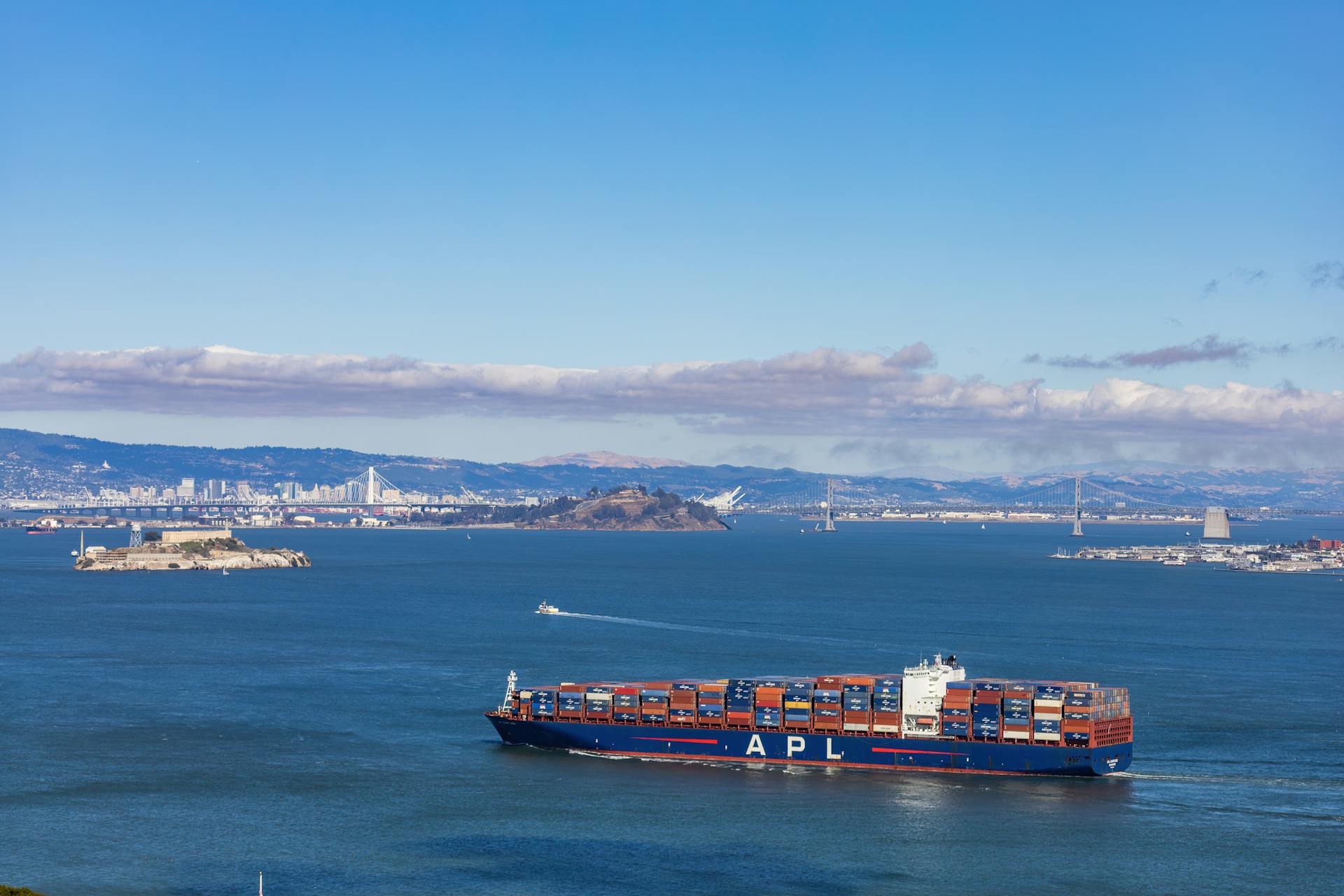
The propulsion system is designed to provide a service speed of 6 knots and a maximum speed of 10 knots. This is achieved through the use of two azimuth propeller pods and two tunnel thrusters.
The vessel will be monitored and controlled from three operation/control centers, which will handle emergency and exception handling, observation of conditions, operational monitoring, and decision support.
The centers will also manage the surveillance of the autonomous vessel and its surroundings, as well as various safety aspects.
Here are the key propulsion details:
- Service speed: 6 knots
- Maximum speed: 10 knots
- Propulsion system: Electric, with a battery pack of up to 9MWh
- Propulsion components: 2 azimuth propeller pods, 2 tunnel thrusters
Cargo Handling Systems
The cargo handling system on Yara Birkeland is designed for efficiency. It can accommodate up to 120 twenty-foot container unit (TEU) capacities.
The vessel's cargo loading and offloading process is automated, utilizing electric cranes and related equipment. This eliminates the need for manual labor and reduces the risk of human error.
The battery pack on Yara Birkeland serves as permanent ballast, eliminating the need for dedicated ballast tanks. This innovative design helps to reduce the vessel's environmental impact.
Frequently Asked Questions
Who owns Yara Birkeland?
Yara Birkeland is owned by Yara International, a company that shares its name. It was also named after the company's founder, Norwegian scientist Kristian Birkeland.
What is the first autonomous ship in the world?
Yara Birkeland is the world's first electric, autonomous ship. It operates independently with minimal crew on board, monitored from a control centre on land.
Sources
- https://en.wikipedia.org/wiki/MV_Yara_Birkeland
- https://www.yara.com/news-and-media/media-library/press-kits/yara-birkeland-press-kit/
- https://www.oldsaltblog.com/2017/10/mv-yara-birkeland-autonomous-container-ship-really-good-idea/
- https://no.wikipedia.org/wiki/MV_%C2%ABYara_Birkeland%C2%BB
- https://www.ship-technology.com/projects/yara-birkeland-autonomous-container-vessel/
Featured Images: pexels.com
